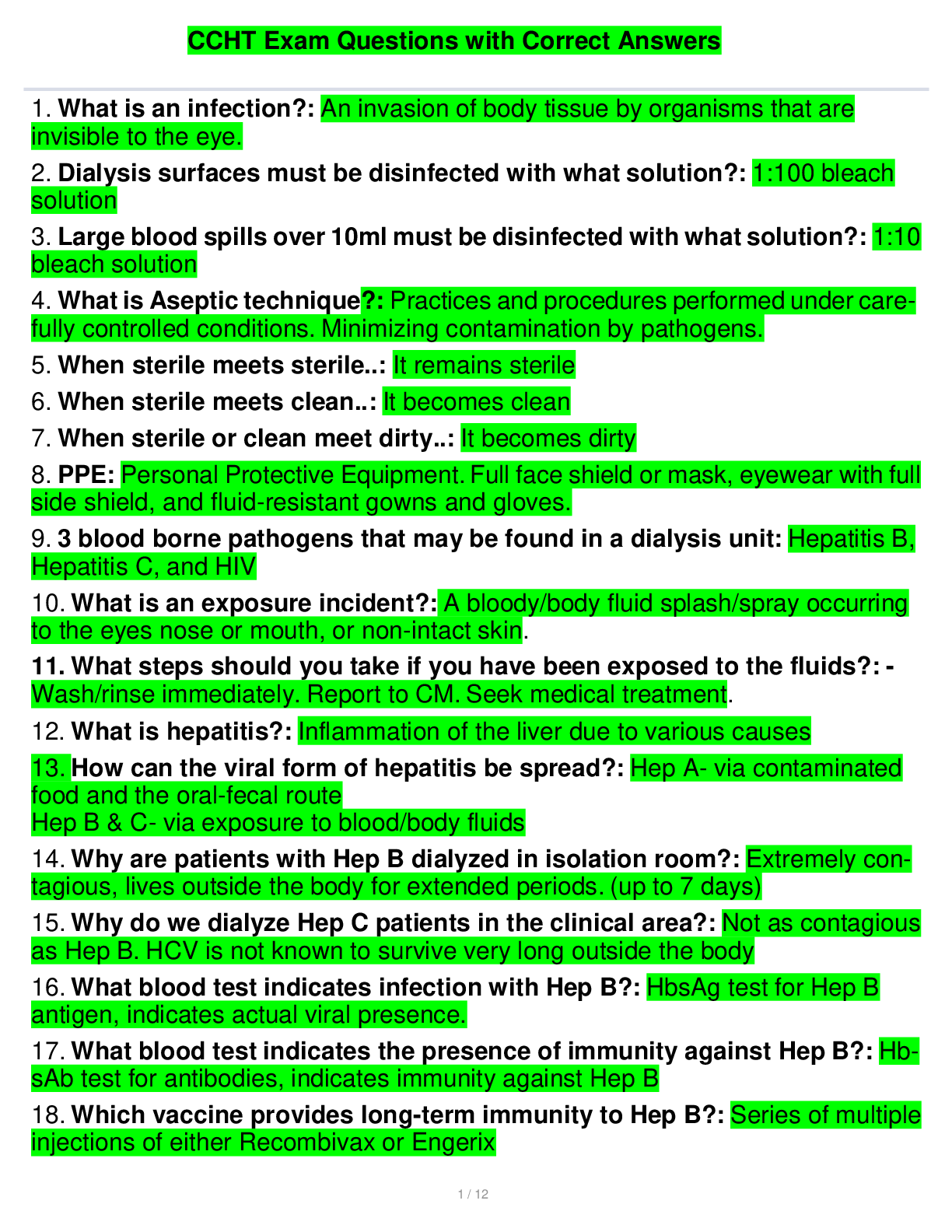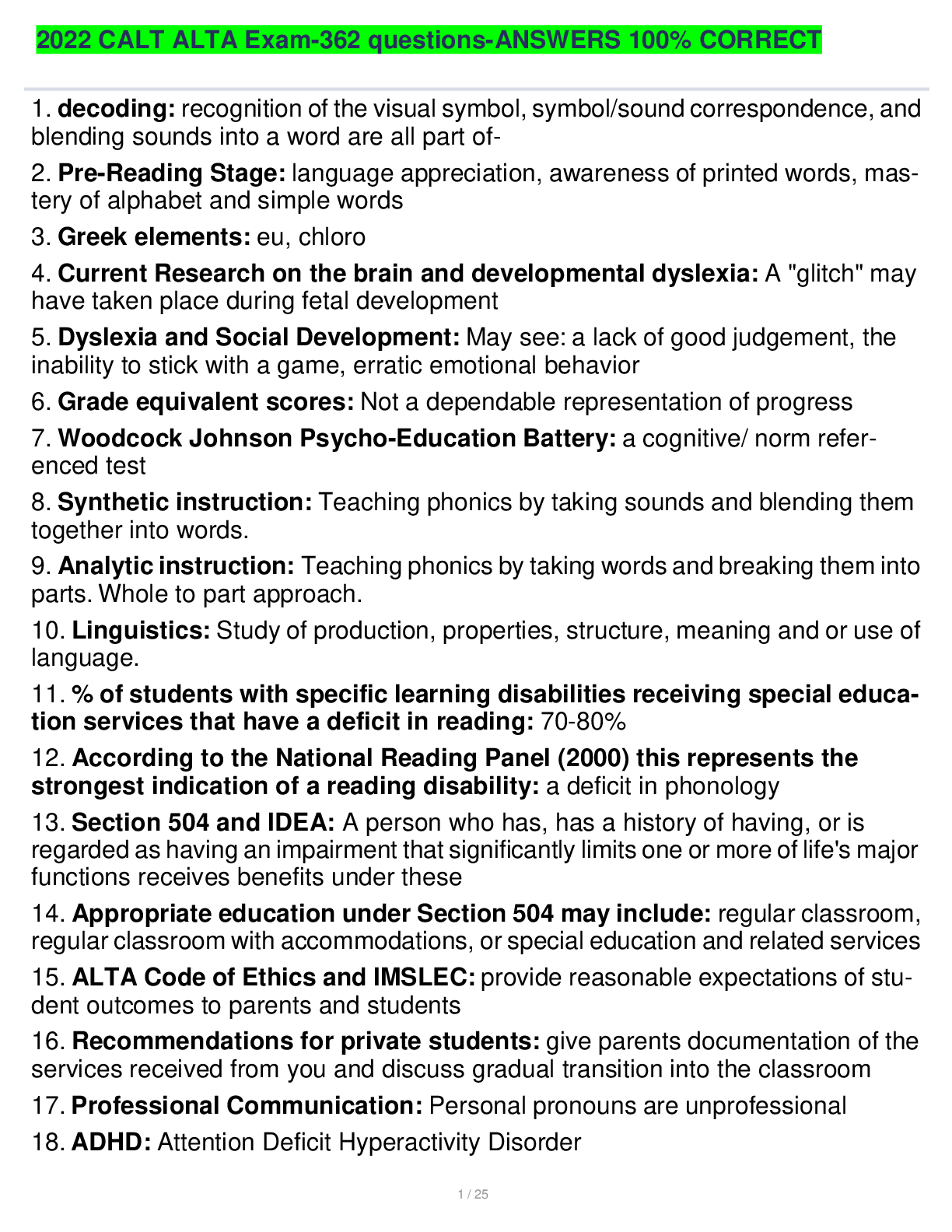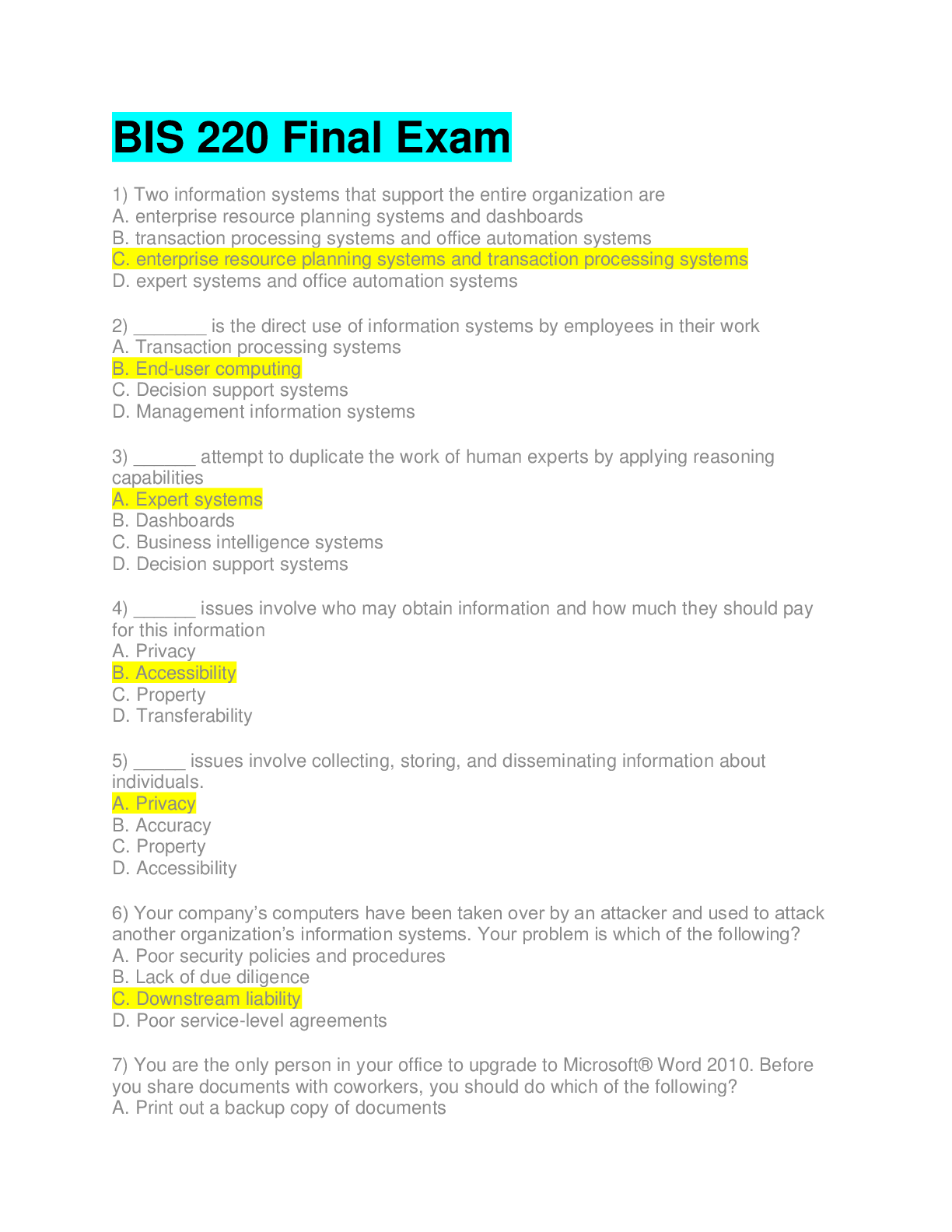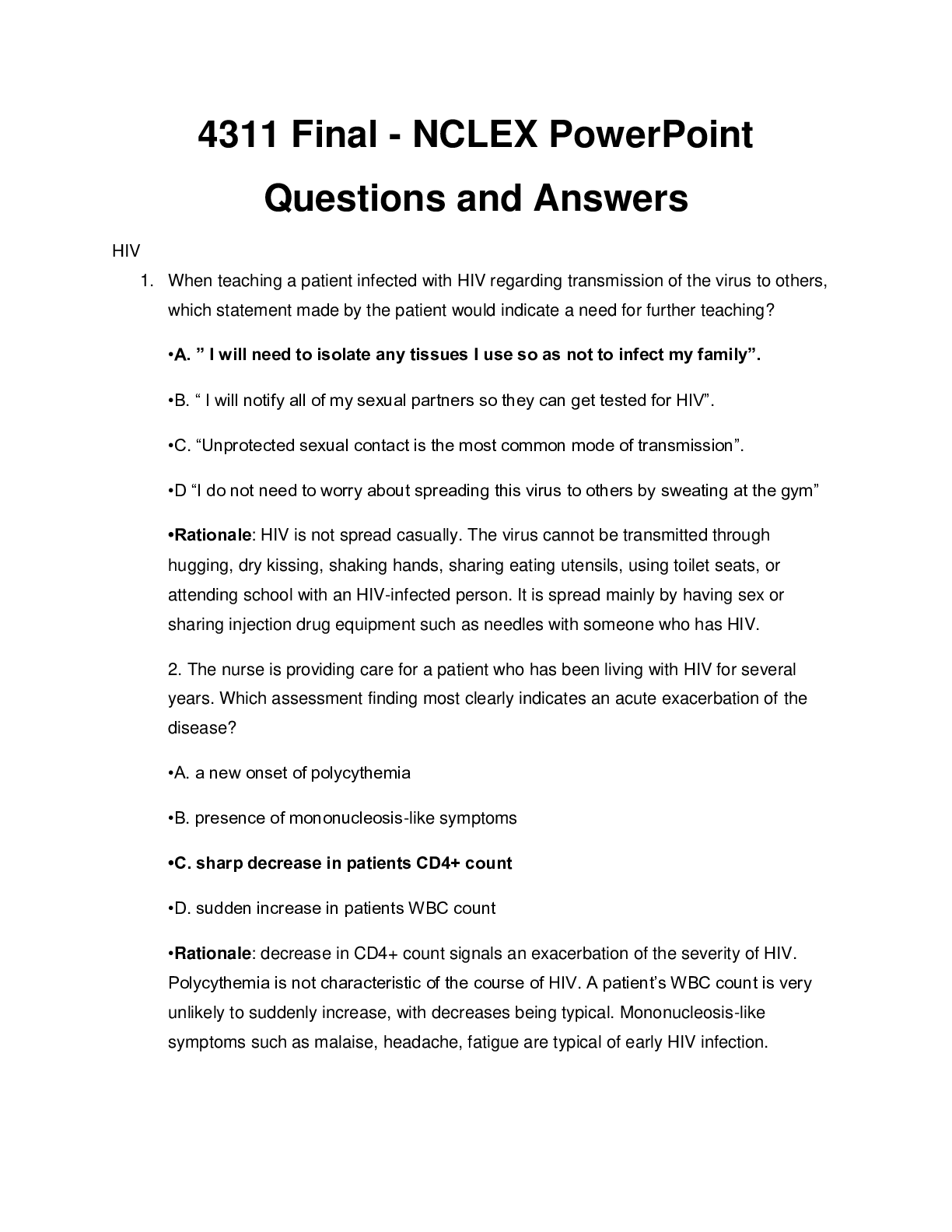*NURSING > QUESTIONS & ANSWERS > AP Euro Final Exam Questions and Answers with Verified Solutions (All)
AP Euro Final Exam Questions and Answers with Verified Solutions
Document Content and Description Below
AP Euro Final Exam Questions and Answers with Verified Solutions Black Death (The Plague) ✔✔1347 Genoese sailors carried cargo along with disease-infested rats and fleas with a disease later ca... lled this. Often transmitted person to person- many priests died because cared for the sick. Started with boil, bubo that was a bump the size of a nut or apple and very painful- gave name. Next came bleeding under skin with spots and blotches. Finally person coughed violently and spit blood and death followed in 2 or 3 days. Not enough time, people, and places to bury and properly care for the dead body so disease spread faster. Hundred Years' War ✔✔Conflict between England and France from 1337 to 1453; fought over lands England possessed in France and feudal rights versus the emerging claims of national states. 1259 Treaty of Paris said English king agreed to become vassal of French crown. When Queen Isabella of England killed her husband King Edward II the French barons wouldn't let her son Edward III or her rule the French monarch. Crown given to Philip VI nephew of Philip the Fair and Philip exercised full jurisdiction which Edward III said violated Treaty of Paris. War also became French civil war making it last longer. Both governments supported the war. England lost all its possessions in France except Calais. Both sides death great and because of Black Death. The crisis led to challenges to the Church. Joan of Arc ✔✔French peasant girl and military leader inspired by religious visions to organize French resistance to the English and to have Charles VII crowned king and helped French win key battles in Hundreds Years' War. English captured her and France didn't fight back. English condemned her as a heretic in 1431 and burned her at stake in Rouen marketplace. Babylonian Captivity ✔✔(1309-1376) Philip the Faire pressured Pope Clement V to settle permanently in Avignon, France to control the church and its policies. It weakened the papal prestige.Great Schism ✔✔Italian citizens wanted a new pope in Rome and France wanted Cardinal Robert, cousin of Charles V of France to be pope in Avignon. There were 2 popes, Urban (VI) in Rome and Clement VII (Cardinal Robert) in Avignon. Confusion over which pope was legitimate and broke down piety and the church. 2 popes and division until 1417 John Wycliffe ✔✔English scholar like an early Martin Luther and helped Europe move toward the Reformation. Wrote that papal claims of power were not in the Scriptures and the Scriptures alone should be standard of belief and everyone should read for themselves. Urged abolition of veneration of saints, pilgrims, pluralism and absenteeism. Conciliar Movement ✔✔Reform of the church through general councils representing all Christians. The pope still is the head of the church, but authority is from the Christian community. Solution to the unrest and Schism and called for a new pope. Led rise to Renaissance papacy. Jan Hus ✔✔Czechoslovakian priest like Wycliffe. He denounced superstition, sale of indulgences, and other abuses. He defeated transubstantiation and insisted Church authority derived from the Scripture alone. Secularism ✔✔concern with the material world and not the eternal world of spirit. Want to find the ultimate explanation of everything. New society and wealth allowed material pleasures, comfortable life and time to appreciate the arts. Humanism ✔✔Expansion of learning and emphasized humans and their achievements, interests, and capabilities. Importance of the individual to get an education, study Latin, and wrote to understand human value. Christian ________ believe in education but stress ethical way of life and spiritual and education through church. Individualism ✔✔Stressed personality, uniqueness, genius, and the fullest development of capabilities and talents.Francesco Petrarch ✔✔Known as the father of Renaissance Humanism. He lived from 1304-1374 as a cleric and committed his life to humanistic pursuits and careful study of the classics. He resisted writing in the Italian vernacular and broke from the old Rome glory ages what he called "Dark Ages" into a new golden age of intellectual achievement. Italian Renaissance ✔✔interest in classical antiquity, perfect human form, and high regard for the individual. Papal still hold authority but people turn toward material things and interest in art. Northern Renaissance ✔✔like Christian humanist more interest in biblical and devotional literature, polished the human soul and searched for Christian roots. More ethnic morality, literature, and art. Italian City States ✔✔Power held in Florence by Medici banking family. Central Italy was Papal States. Major states controlled smaller ones competing for territory and created balance of power and modern diplomacy. A lot of oversea and canal transport and trade and Florence capital of banking but most Italians made money through selling wool Venice, Milan, Florence, Naples, Papal States [Show More]
Last updated: 2 years ago
Preview 1 out of 32 pages
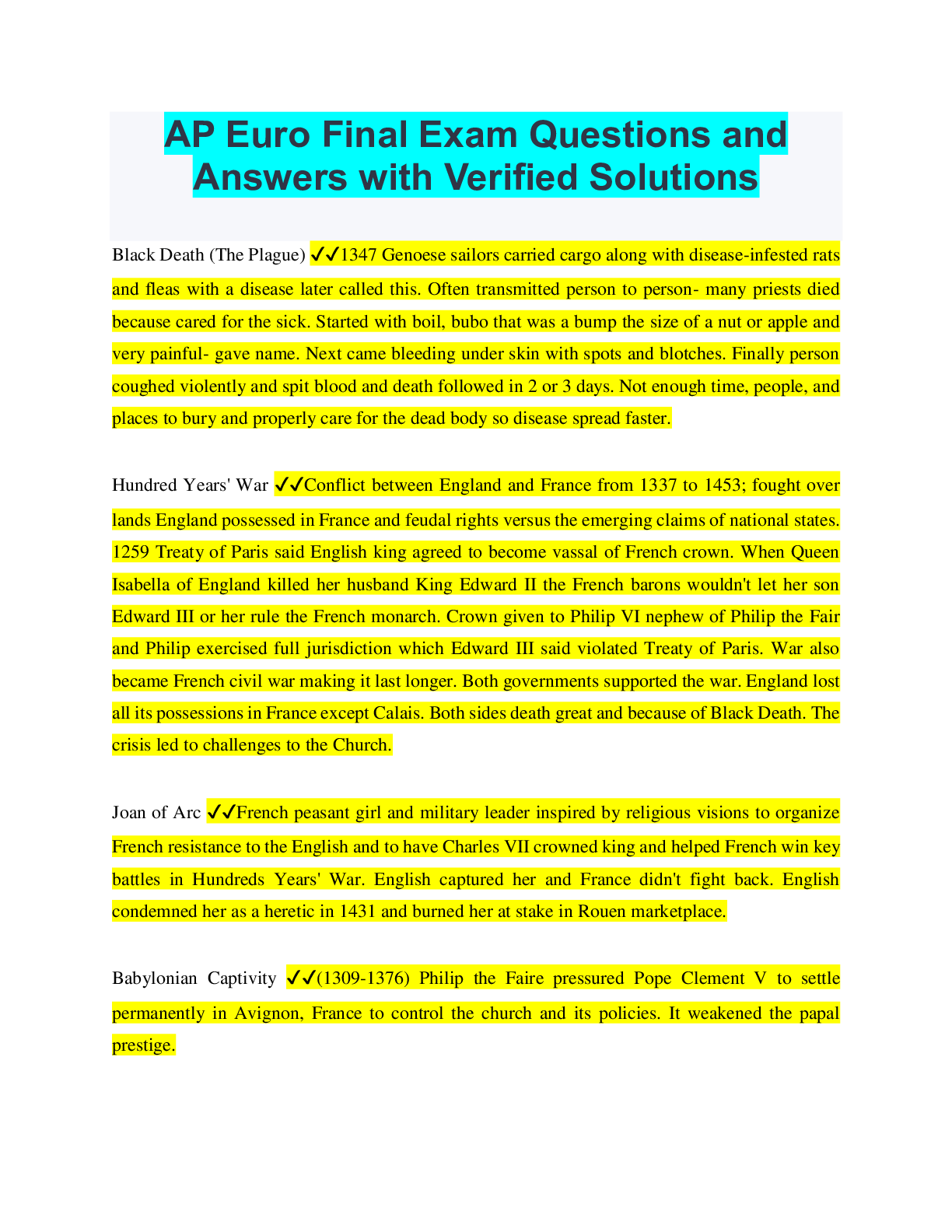
Buy this document to get the full access instantly
Instant Download Access after purchase
Buy NowInstant download
We Accept:

Reviews( 0 )
$7.50
Can't find what you want? Try our AI powered Search
Document information
Connected school, study & course
About the document
Uploaded On
Nov 14, 2022
Number of pages
32
Written in
Additional information
This document has been written for:
Uploaded
Nov 14, 2022
Downloads
0
Views
177
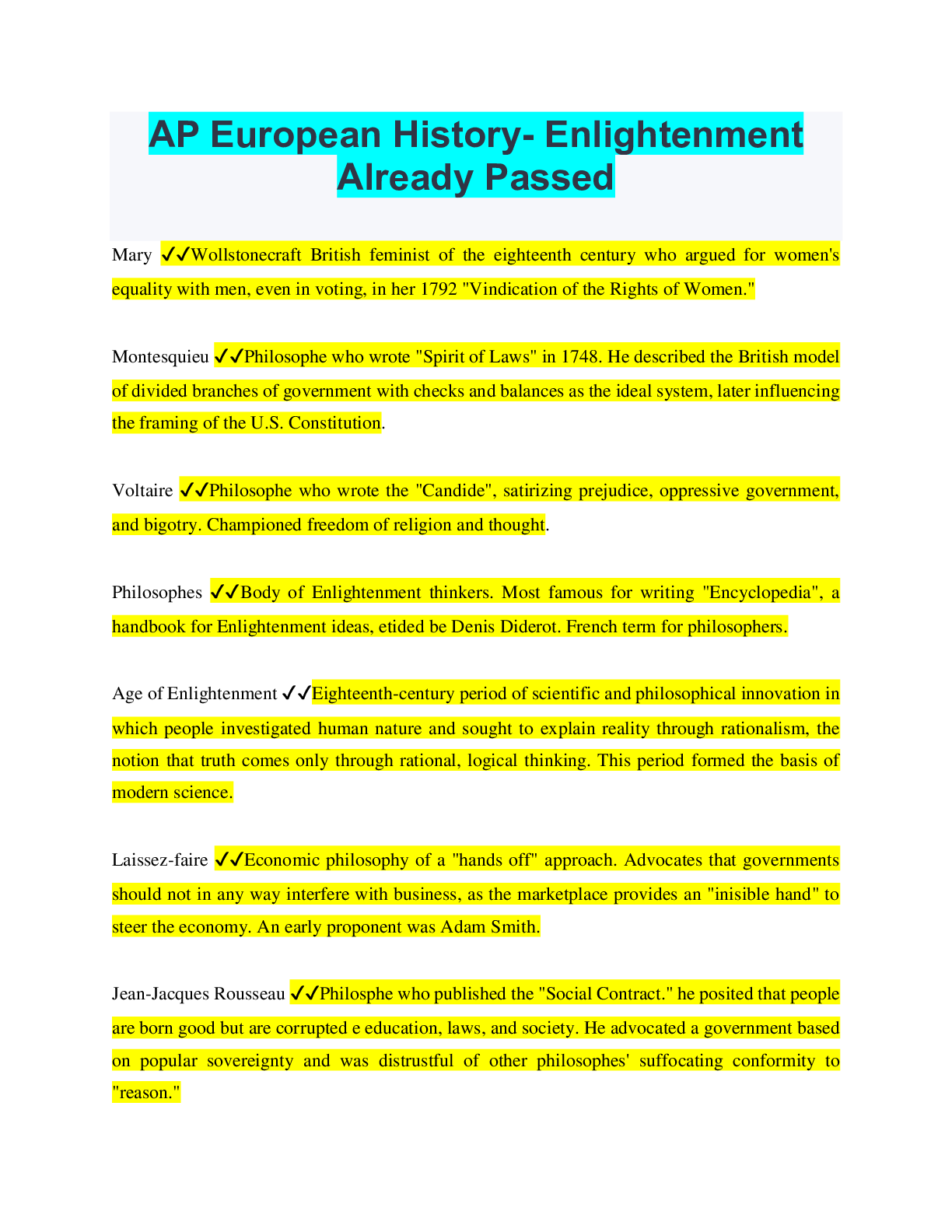

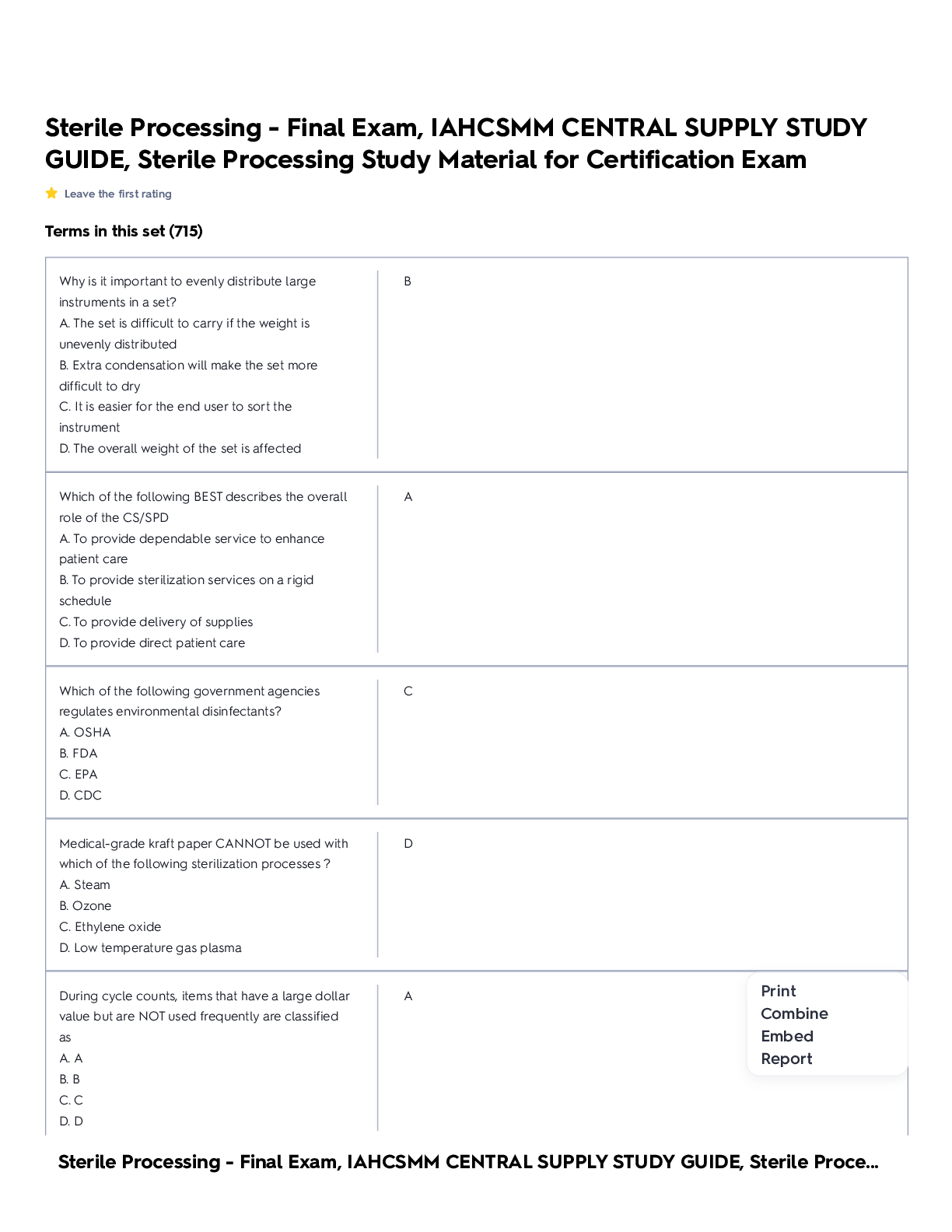

 with Complete Solution.png)
 Career Information with Complete Solution.png)


 for E-6 Career Information_watermark.png)
